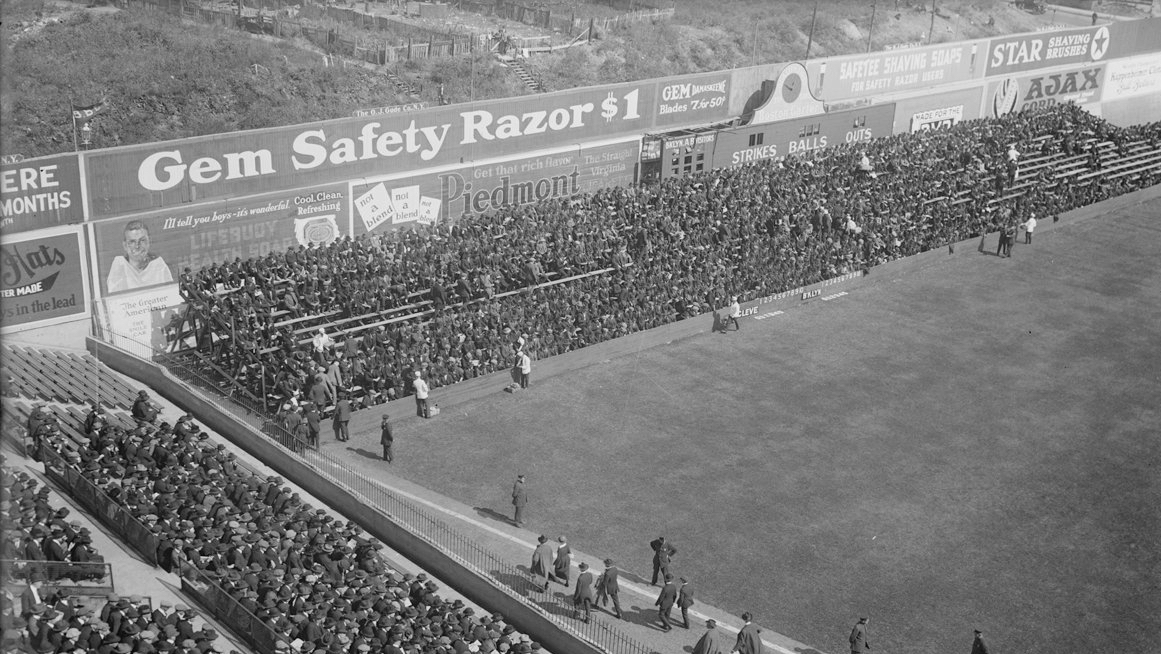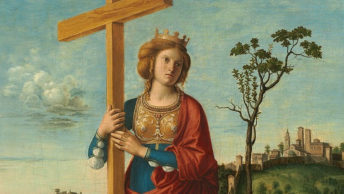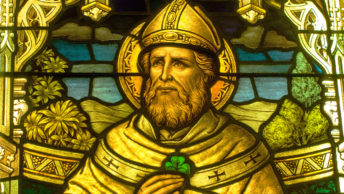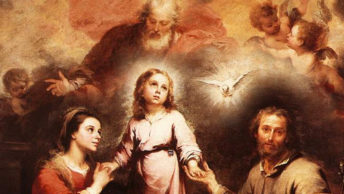One of the strangest triple plays in baseball history happened to the old Brooklyn Dodgers at their home park of Ebbets Field over seventy years ago. The Dodgers had runners on first and second with no outs; the batter hit a deep fly ball to the outfield, but the runners stayed on base, thinking the ball would be caught. The batter, however, lowered his head and began charging around first, ignoring his teammates on base. The runners had a problem: if the batter passed them on the basepaths, they’d automatically be out—so they had to start running, too, and somehow all three of them ended up at third base; not sure what to do, all of them stepped off the bag. In the meantime, the other team’s centerfielder got to the ball—and dropped it. He picked it up and threw it home; the catcher fired the ball to the third baseman, who tagged out the runners—one, two, three—for a bizarre triple play. (A few days later a taxi driver called up to a fan in the stands, “What’s the score?” The fan shouted back, “We’re losing, 2-1, but we’ve got three men on base.” The taxi driver asked, “Oh, yeah? Which base?”) It’s possible that when the three embarrassed Dodgers went back to the dugout and had to explain what happened to their furious manager, they may simply have said, “We got confused” (Dynamic Preaching).
Many things in life can be confusing, and they often involve the number three. If we’re driving somewhere unfamiliar and we come to an unmarked intersection, do we turn right, go left, or continue going straight? If the state government is facing a budget deficit, should it raise taxes, cut spending, or—as often happens—refuse to make any hard decisions and have our elected leaders blame their political opponents? If we’re a contestant on the TV game show “Let’s Make a Deal,” do we want what’s behind door #1, door #2, or door #3? There are confusing three-way choices and ideas in life, and also in our faith. Perhaps the most difficult or confusing teaching of our religion is that of the Holy Trinity: Three Persons in One God, all equal in power, majesty, and holiness, distinct but perfectly united. This truth isn’t something we need to understand, but it does call for our response—and faith and love are the keys. If we believe the Holy Spirit is with us, we will be given all the graces and strength necessary to follow Jesus, and in this way we will offer true worship to God the Father; this loving response will help us find the meaning of life here on earth, and one day share in the life of the Holy Trinity in Heaven.
The readings for Trinity Sunday tell us that faith enables us to overcome the confusion and doubts of life. The Book of Proverbs speaks of divine Wisdom, which was in existence even before the creation of the earth. Because divine Wisdom existed before the creation of human life, that means it’s greater than any of life’s mysteries or problems—and this wisdom is given to anyone who seeks it humbly and sincerely. St. Paul assures us of this truth when he says, “Hope does not disappoint, because the love of God has been poured out in our hearts through the Holy Spirit that has been given to us.” Paul says that by placing our trust in Jesus, we are at peace with God—and this peace helps us discover and appreciate the true meaning of life. As Jesus promises in the Gospel, “When He comes, the Spirit of truth, He will guide you to all truth.” Our Lord wasn’t referring, of course, to proper base-running skills or knowing which prize to choose on a game TV show, but to the things that truly matter: discovering one’s vocation in life, making decisions for God’s glory, and finding and choosing the path which leads to eternal happiness.
Our limited human understanding can barely begin to grasp the reality of the Holy Trinity, but it can help if—from our subjective perspective—we look at each Person’s role in the process of salvation. God the Father created us, Jesus the Son redeemed us, and the Holy Spirit sanctifies us. Knowing the role of each Person can help us overcome confusion and find meaning in life. For instance, do we ever wonder about our value as persons, thinking things like “I can’t do anything right; I’m hopeless; no one could love me,” and so forth? Through her teaching on the Holy Trinity, the Church reminds us that God the Father created us—and as the saying goes, He doesn’t make junk. Society can confuse and upset us with its shallow ideals and standards; our faith should remind us of our royal heritage as children of God.
Are there times when we get disgusted with ourselves, being ashamed of our behavior and of our inability to overcome our sins? We all have faults and bad habits, and—in moments of honesty—we’re profoundly aware of our sinfulness; fortunately, this harsh and inescapable truth is only part of the story. Our Catholic faith reminds us that Jesus redeems us from our sins; through Him we have become a new creation—and so we have reason for hope, not despair.
Do we sometimes find life to be overwhelming? Are we troubled by temptations, fears, worries, unreasonable expectations, and uncertainty and confusion about what’s right? Scripture teaches us that Jesus promised He would not leave us as orphans, and on Pentecost Sunday He fulfilled His promise by sending His Spirit. The Holy Spirit brings His gifts to strengthen, guide, and console us, helping us bear our burdens and showing us the proper path through life.
The problems and challenges of life can be bewildering, especially in the threefold process of relating to the world, to other people, and to ourselves. The Holy Trinity—the greatest mystery of our faith—offers us the answers to the mysteries of life. We are immeasurably loved by the Father, the Son, and the Holy Spirit—and when we respond in faith to our Creator, Redeemer, and Sanctifier, to our threefold God of grace and love and peace, we are strengthened and renewed in this life and made ready for an eternity of blessing and peace.









Dear Father Esper ,
You always give me hope through your Pastoring of The Fathers Sheep ! Please remember we Baby Catholics in your Prayers ! Tiber Swim Club 2014!
God Bless you Father,
Angela L. Burns